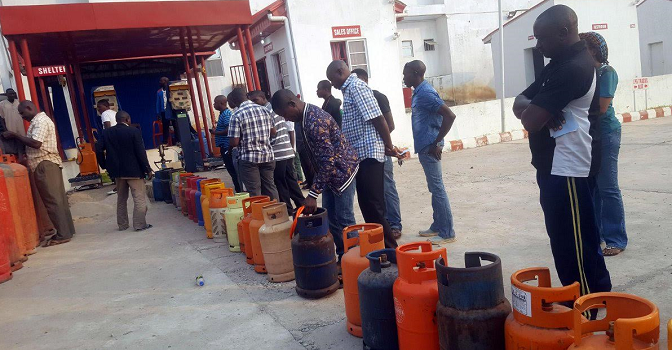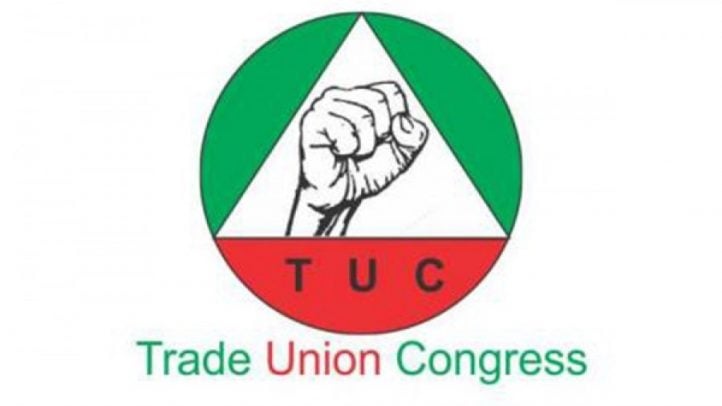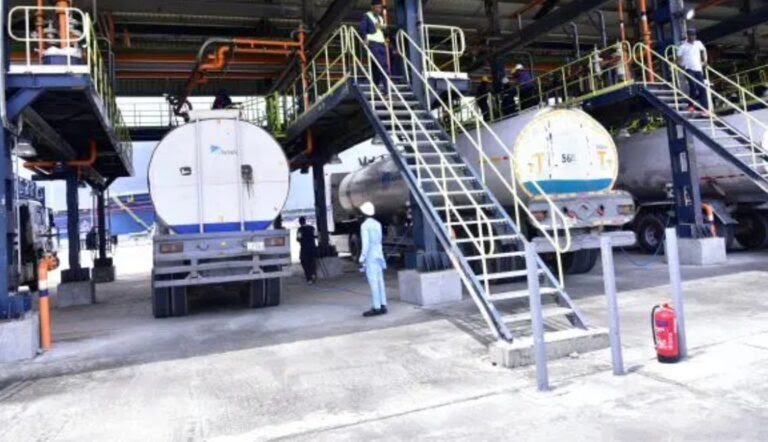
JUST IN: Dangote Refinery Slashes Petrol Price to N820/Litre
- Business
- 13.09.2025
- No Comment
- 125
JUST IN: Dangote Refinery Slashes Petrol Price to N820/Litre
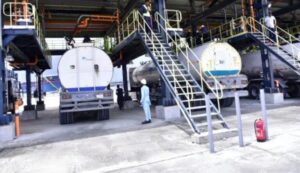
Official Statement from Dangote Group
According to a statement signed by the Group Chief Branding and Communications Officer, Anthony Chiejina:
“Dangote Petroleum Refinery has announced a reduction in the ex-depot (gantry) price of Premium Motor Spirit, commonly referred to as petrol, by N30 from N850 to N820 per litre, effective from 12th August 2025. As part of our unwavering commitment to national development, Dangote Petroleum Refinery assures the public of a consistent and uninterrupted supply of petroleum products.”

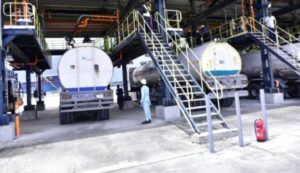
Recent announcements about Dangote Petroleum Refinery — from reported petrol price cuts to the planned deployment of 4,000 CNG-powered distribution trucks — have dominated headlines. This article breaks down what was reported, what it means for fuel prices in Nigeria today, and answers common questions circulating online.
According to official statements issued by Dangote Group spokespeople, the refinery announced a reduction in the ex-depot (gantry) price of Premium Motor Spirit (PMS, commonly called petrol). Reports from the announcement put the new ex-depot price at N820 per litre, down from N850 — a N30 reduction effective from the stated date of the company’s release.
Important: Media summaries sometimes refer to different figures (for example claims of N15 reductions) — always check the company’s press release or a credible industry source to confirm the official number.
Will Dangote’s CNG-powered trucks reduce fuel prices?
Dangote’s plan to deploy up to 4,000 CNG (Compressed Natural Gas)-powered trucks for direct distribution is framed as a long-term efficiency and sustainability initiative. The potential price impacts can be understood across three channels:
- Lower distribution cost: CNG is often cheaper than diesel per kilometre and may reduce operating cost for haulage over time — savings that could be passed along the supply chain.
- Fewer intermediaries: Direct distribution from the refinery to retail outlets shortens the distribution chain, possibly reducing mark-ups that accumulate when many middlemen are involved.
- Supply reliability: Greater control over logistics can stabilise supply, reducing the sudden local shortages that push pump prices up temporarily.
However, these are structural influences and tend to reduce prices gradually. Immediate retail price changes depend on government taxes, retailer margins, exchange rates and commercial decisions by marketers — so CNG trucks alone are not an instant guaranteed cut at the pump.
Did Dangote and NNPC both reduce petrol prices?
The widely circulated company statement about a reduction to N820 per litre was issued by Dangote Petroleum Refinery. That announcement does not automatically mean the Nigerian National Petroleum Company (NNPC) or other marketers simultaneously reduced prices. NNPC and other major marketers set their own ex-depot or wholesale pricing policies and must issue their own statements if they change prices.
If you see conflicting claims (e.g., “Dangote and NNPC both cut prices”), verify by checking official statements from both organisations or the regulator (e.g., DPR/NPRA or the Ministry of Petroleum).
Was the cut N15 per litre or N30 per litre — what’s correct?
Two types of reporting errors often appear in the aftermath of price announcements: rounding, and mixing retail vs ex-depot figures. The Dangote announcement referenced an ex-depot cut from N850 to N820 (a N30 change). Some outlets or social shares reported lower figures (like N15) which could reflect partial regional adjustments, misquotes, or early market reactions.
Bottom line: rely on the refinery’s own release or regulator communications for the authoritative figure. Market prices at the pump may differ from the ex-depot price after dealer/refinery logistics and taxes are applied.
How soon will Nigerians see cheaper fuel at petrol stations?
Timing depends on the channel between the refinery and the consumer:
- Immediate wholesale effect: Marketers sourcing directly from Dangote at the new ex-depot price can see immediate reductions in their landed costs.
- Retail lag: Retail stations may take days or weeks to reflect the change depending on stock on hand and existing supply contracts.
- Geographical differences: Transport costs and regional taxes can cause local pump prices to differ from the headline ex-depot rate.
In practice, expect a phased pass-through: some stations lower prices quickly, others wait until they exhaust older, higher-cost stock.
The Dangote distribution plan and price cuts are generally positive for competition and supply — but there are possible complications:
- Industrial relations: New logistics models (e.g., direct distribution) can disrupt existing employment and union structures in the downstream sector — monitor for labour actions.
- Regulatory reaction: The government may review pricing, allocation rules, or mandate parity to protect consumers and existing marketers.
- Market coordination: Other refiners and marketers may respond with their own pricing to protect margins or market share.
Quick FAQ
- Did Dangote say it will start direct distribution with 4,000 CNG trucks?
- Yes — the company announced a phased roll-out of CNG-powered trucks as its preferred distribution fleet. This is a logistics and sustainability move that is expected to start the rollout on the dates stated in Dangote’s release.
- Will Dangote’s action immediately force NNPC or other marketers to cut prices?
- Not automatically. Other players may or may not match the cut depending on contracts, stock and commercial strategies. The regulator can influence market behaviour but each company issues its own pricing decisions.
- Is the petrol price cut N15 or N30?
- Officially the reported ex-depot change was from N850 to N820 — a N30 reduction. If you see N15 cited, check the original source: it may be misreporting or referring to a different pricing point (retail vs ex-depot).
- Will CNG trucks reduce fuel shortages?
- Potentially. Direct and modernised distribution can improve throughput and reduce bottlenecks, but structural issues (pipeline access, port logistics, storage) also matter..
Did Dangote say it will start direct distribution with 4,000 CNG trucks?
Yes — the company announced a phased roll-out of CNG-powered trucks as its preferred distribution fleet. This is a logistics and sustainability move that is expected to start the rollout on the dates stated in Dangote’s release.
Will Dangote’s action immediately force NNPC or other marketers to cut prices?
Not automatically. Other players may or may not match the cut depending on contracts, stock and commercial strategies. The regulator can influence market behaviour but each company issues its own pricing decisions.
Is the petrol price cut N15 or N30?
Officially the reported ex-depot change was from N850 to N820 — a N30 reduction. If you see N15 cited, check the original source: it may be misreporting or referring to a different pricing point (retail vs ex-depot).
Will CNG trucks reduce fuel shortages?
Potentially. Direct and modernised distribution can improve throughput and reduce bottlenecks, but structural issues (pipeline access, port logistics, storage) also matter.
Did Dangote and NNPC both reduce petrol prices?
JUST IN: Dangote Refinery Slashes Petrol Price to N820/LitreIn a major relief for Nigerians, Dangote Petroleum Refinery has officially reduced the ex-depot price of Premium Motor Spirit (PMS), commonly called petrol, from N850 to N820 per litre. The new price takes effect from 12th August 2025.Official Statement from Dangote GroupAccording to a statement signed by the Group Chief Branding and Communications Officer, Anthony Chiejina:“Dangote Petroleum Refinery has announced a reduction in the ex-depot (gantry) price of Premium Motor Spirit, commonly referred to as petrol, by N30 from N850 to N820 per litre, effective from 12th August 2025. As part of our unwavering commitment to national development, Dangote Petroleum Refinery assures the public of a consistent and uninterrupted supply of petroleum products.”This adjustment is expected to bring relief to millions of Nigerians already grappling with high fuel costs and economic challenges. The reduction demonstrates Dangote Refinery’s role in stabilizing Nigeria’s downstream oil sector and providing affordable energy solutions to the population.Related News: DANGOTE PETROLEUM REFINERY TO BEGIN DISTRIBUTION OF PMS AND DIESEL NATIONWIDEAnalysts believe the pricing could also ease inflationary pressures, reduce transportation costs, and positively impact the prices of goods and services across the country.In addition to the price cut, the statement revealed that the refinery will commence the phased deployment of 4,000 Compressed Natural Gas (CNG)-powered trucks for fuel distribution across Nigeria from 15th August 2025.This move aligns with global energy transition goals and Nigeria’s push towards cleaner, more sustainable energy solutions. The introduction of CNG trucks will not only reduce reliance on diesel-powered vehicles but also cut emissions, enhance efficiency, and create new opportunities in the green energy sector.The management emphasized its dedication to operational excellence and sustainable energy delivery. By ensuring steady supply and stable prices, Dangote Refinery is reinforcing its position as a crucial player in Nigeria’s economic growth and energy independence.The initiative also supports the Federal Government’s agenda of reducing fuel importation, strengthening local refining capacity, and promoting energy security in Africa’s largest economy.The reduction of petrol price from N850 to N820 per litre by Dangote Refinery marks a significant step in Nigeria’s energy sector. Combined with the deployment of CNG-powered trucks, the initiative underscores the company’s role in delivering affordable fuel, promoting sustainability, and supporting economic stability.Nigerians can expect better fuel availability, more stable pricing, and the long-term benefits of a cleaner energy distribution system.Recent announcements about Dangote Petroleum Refinery — from reported petrol price cuts to the planned deployment of 4,000 CNG-powered distribution trucks — have dominated headlines. This article breaks down what was reported, what it means for fuel prices in Nigeria today, and answers common questions circulating online.According to official statements issued by Dangote Group spokespeople, the refinery announced a reduction in the ex-depot (gantry) price of Premium Motor Spirit (PMS, commonly called petrol). Reports from the announcement put the new ex-depot price at N820 per litre, down from N850 — a N30 reduction effective from the stated date of the company’s release.Important: Media summaries sometimes refer to different figures (for example claims of N15 reductions) — always check the company’s press release or a credible industry source to confirm the official number.Will Dangote’s CNG-powered trucks reduce fuel prices?Dangote’s plan to deploy up to 4,000 CNG (Compressed Natural Gas)-powered trucks for direct distribution is framed as a long-term efficiency and sustainability initiative. The potential price impacts can be understood across three channels:Lower distribution cost: CNG is often cheaper than diesel per kilometre and may reduce operating cost for haulage over time — savings that could be passed along the supply chain.Fewer intermediaries: Direct distribution from the refinery to retail outlets shortens the distribution chain, possibly reducing mark-ups that accumulate when many middlemen are involved.Supply reliability: Greater control over logistics can stabilise supply, reducing the sudden local shortages that push pump prices up temporarily.However, these are structural influences and tend to reduce prices gradually. Immediate retail price changes depend on government taxes, retailer margins, exchange rates and commercial decisions by marketers — so CNG trucks alone are not an instant guaranteed cut at the pump.Did Dangote and NNPC both reduce petrol prices?The widely circulated company statement about a reduction to N820 per litre was issued by Dangote Petroleum Refinery. That announcement does not automatically mean the Nigerian National Petroleum Company (NNPC) or other marketers simultaneously reduced prices. NNPC and other major marketers set their own ex-depot or wholesale pricing policies and must issue their own statements if they change prices.If you see conflicting claims (e.g., “Dangote and NNPC both cut prices”), verify by checking official statements from both organisations or the regulator (e.g., DPR/NPRA or the Ministry of Petroleum).
Will Dangote’s CNG-powered trucks reduce fuel prices?
Dangote’s plan to deploy up to 4,000 CNG (Compressed Natural Gas)-powered trucks for direct distribution is framed as a long-term efficiency and sustainability initiative. The potential price impacts can be understood across three channels:Lower distribution cost: CNG is often cheaper than diesel per kilometre and may reduce operating cost for haulage over time — savings that could be passed along the supply chain.Fewer intermediaries: Direct distribution from the refinery to retail outlets shortens the distribution chain, possibly reducing mark-ups that accumulate when many middlemen are involved.Supply reliability: Greater control over logistics can stabilise supply, reducing the sudden local shortages that push pump prices up temporarily.However, these are structural influences and tend to reduce prices gradually. Immediate retail price changes depend on government taxes, retailer margins, exchange rates and commercial decisions by marketers — so CNG trucks alone are not an instant guaranteed cut at the pump.Did Dangote and NNPC both reduce petrol prices?The widely circulated company statement about a reduction to N820 per litre was issued by Dangote Petroleum Refinery. That announcement does not automatically mean the Nigerian National Petroleum Company (NNPC) or other marketers simultaneously reduced prices. NNPC and other major marketers set their own ex-depot or wholesale pricing policies and must issue their own statements if they change prices.If you see conflicting claims (e.g., “Dangote and NNPC both cut prices”), verify by checking official statements from both organisations or the regulator (e.g., DPR/NPRA or the Ministry of Petroleum).
How soon will Nigerians see cheaper fuel at petrol stations?
Timing depends on the channel between the refinery and the consumer:
Immediate wholesale effect: Marketers sourcing directly from Dangote at the new ex-depot price can see immediate reductions in their landed costs.
Retail lag: Retail stations may take days or weeks to reflect the change depending on stock on hand and existing supply contracts.
Geographical differences: Transport costs and regional taxes can cause local pump prices to differ from the headline ex-depot rate.
In practice, expect a phased pass-through: some stations lower prices quickly, others wait until they exhaust older, higher-cost

